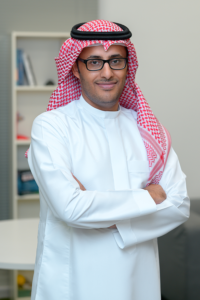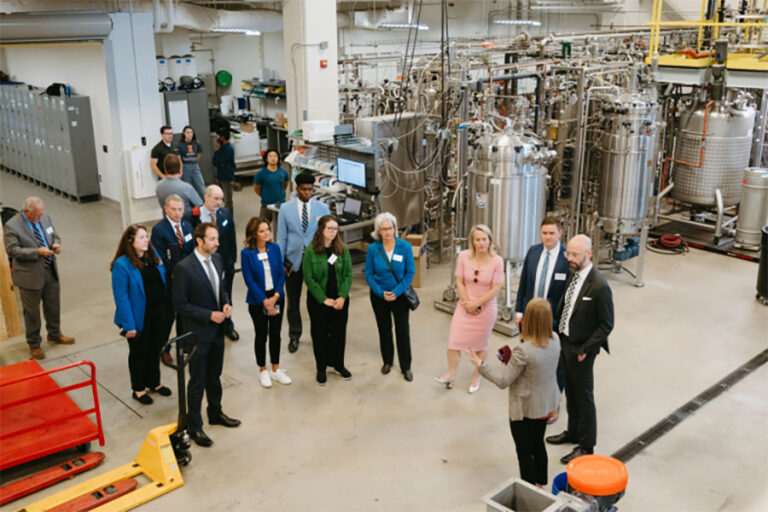
Since starting his first company at the age of just 19, Hatem Kameli has been at the heart of Saudi Arabia’s startup ecosystem. The digital entrepreneur is now planning to launch his first IPO.
When a young Hatem Kameli founded his first internet startup 20 years ago, right in the wake of the dotcom crash, his family and friends told him to concentrate on his university studies and find a safe government job.
Two decades and half a dozen businesses later, Hatem has become one of Saudi Arabia’s best known entrepreneurs, and is now the CEO of Resal, the Middle East’s largest platform for making digital gifts.
“In all my companies, I have always tried to use new technologies in ways that make a real difference to the economy and have a positive impact on people’s lives,” he says. “Whatever I do, I want to add value to the community.”
Things were not always easy in the beginning. Hatem shuttered two early online businesses because of a lack of venture capital. After selling the most successful of his earliest companies, he decided to gain more management experience by working on digital strategy for well-known banks and airlines. He also completed an MBA.
In 2016, when Saudi Arabia launched its Vision 2030 plan for transforming its economy, Hatem was ideally positioned to surf a new wave of opportunity.
“Everything changed with Vision 2030,” he says. “We now have incubators and accelerators for startups, plentiful venture capital, and multiple financing programs. The ecosystem is incredible.”
“I’m grateful to work in a regional hub for technology, fintech, e-commerce, and digital entertainment.”
Hatem Kameli, Co-Founder & CEO, Resal
Hatem himself has played a role in growing this ecosystem, helping to develop one of the country’s first technology incubators and building new connections between investors and the startup community.
Between running a digital marketing agency and launching a powerful analytics platform for social media, he also found time to attend executive courses at world-class academic institutions and write two books about social media marketing.
Hatem’s energy and his passion for connecting people have found their natural expression in Resal, an award-winning company that enables people and companies to buy and distribute digital prepaid gift cards.
After completing two rounds of funding, attracting two million end-users, and signing up hundreds of merchant partners across the region, the serial entrepreneur is now facing his most inspiring challenge yet: completing his first IPO.
“Before long, we aim to list Resal on the Saudi stock exchange,” he says. “We are growing continuously, and within the next three to four years, I think we will reach a valuation of $1 billion.”
 What were your first startups?
What were your first startups?
My first business was a small search engine which enabled consumers in Saudi Arabia to search for Arabic content. At the time, I was still a Computer Science student. I gained a wealth of knowledge about how to create a vision and create a team. Then I established a content management system for newspapers. We had a team of about 30 developers and software engineers, some of whom I still work with to this day. It taught me a lot about business models and customer relations. But back then, there wasn’t the venture capital that is available today to support new businesses.
What has changed in Saudi Arabia since those days?
The real change started with Vision 2030. The first venture capitalists emerged, and many initiatives were launched to help entrepreneurs build their own technology startups, such as the Saudi Venture Capital fund from the government. This really helped grow the ecosystem and make things easier for entrepreneurs. Startups can now get access to venture capital in their very early stages.
How did your companies benefit from Vision 2030?
In 2015, I co-founded Lucidya. It is the main platform in the region for helping companies understand social media users. At Lucidya, we have raised three rounds of funding. We raised $6 million in the last round. The success of Lucidya has only been possible thanks to Vision 2030 and all the programs to support entrepreneurs and give them access to funds. Lucidya now competes with the global players.
I personally benefited from government-funded training in leadership and entrepreneurship. It helped me learn how to build a team, scale the business, expand in multiple markets, and secure venture capital funding.
What are your plans for Resal?
Our vision for the next five years is to expand. Within the next five years, we plan to reach almost 20 markets, up from about six now. We want to build the biggest network in the region for rewards, gift cards, and loyalty programs. We currently have almost 600 brands in our network, and are planning to reach almost 5,000.
We have raised two rounds of funding and we have a great team, more than half of which is female. We were named the Best Technology Provider in our sector at the 2021 Incentive Awards. We have also entered the loyalty programs market with our acquisition of Boonus. We are helping to grow the market for digital gift cards and prepaid cards not only in Saudi Arabia, but across the whole Middle East region.
As a serial entrepreneur, where do you see the greatest opportunities in the Saudi market?
I can see major potential in the entertainment and gaming sectors, including Augmented Reality (AR) and Virtual Reality (VR). Around 70% of Saudi Arabia’s population is under 30, and they are massive users of social media.
This generation is looking for something different. If I wanted to build something new, I would focus on entertainment and gaming![]()
Published as branded content in WIRED magazine









